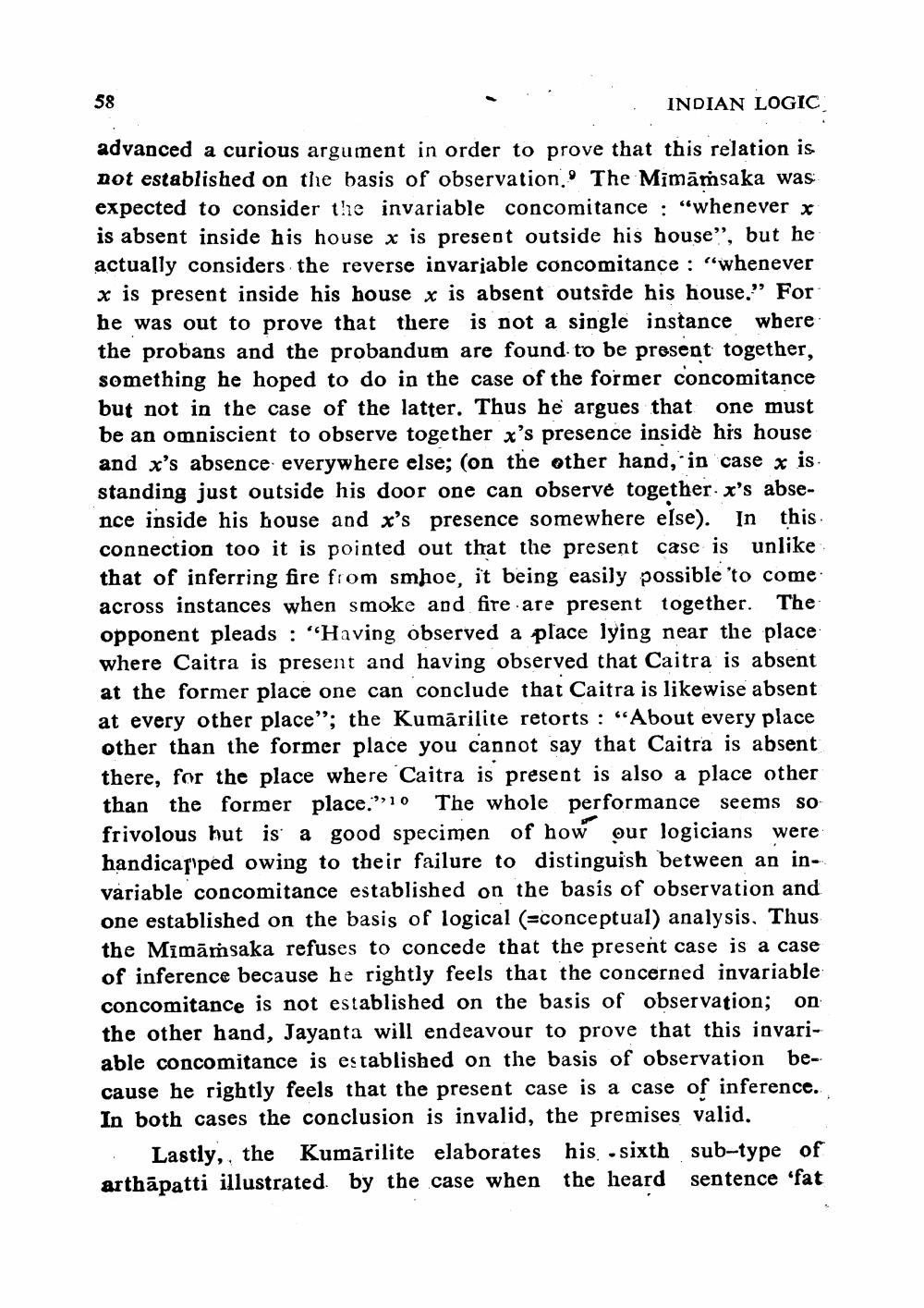________________
58
INDIAN LOGIC
advanced a curious argument in order to prove that this relation is not established on the basis of observation. The Mimāṁsaka was expected to consider the invariable concomitance : “whenever x is absent inside his house x is present outside his house”, but he actually considers the reverse invariable concomitance : “whenever x is present inside his house x is absent outside his house.” For he was out to prove that there is not a single instance where the probans and the probandum are found to be present together, something he hoped to do in the case of the former concomitance but not in the case of the latter. Thus he argues that one must be an omniscient to observe together x's presence inside his house and x's absence everywhere else; (on the other hand, in case x is. standing just outside his door one can observe together. x's absence inside his house and x's presence somewhere else). In this connection too it is pointed out that the present case is unlike that of inferring fire from smhoe, it being easily possible to come across instances when smoke and fire are present together. The opponent pleads : "Having observed a place lying near the place where Caitra is present and having observed that Caitra is absent at the former place one can conclude that Caitra is likewise absent at every other place"; the Kumarilite retorts : "About every place other than the former place you cannot say that Caitra is absent there, for the place where Caitra is present is also a place other than the former place.” 10 The whole performance seems sofrivolous hut is a good specimen of how our logicians were handicas ped owing to their failure to distinguish between an invariable concomitance established on the basis of observation and one established on the basis of logical (=conceptual) analysis. Thus the Mimāṁsaka refuses to concede that the present case is a case of inference because he rightly feels that the concerned invariable concomitance is not established on the basis of observation; on the other hand, Jayanta will endeavour to prove that this invariable concomitance is established on the basis of observation because he rightly feels that the present case is a case of inference. In both cases the conclusion is invalid, the premises valid.
Lastly,, the Kumārilite elaborates his. -sixth sub-type of arthāpatti illustrated by the case when the heard sentence 'fat




